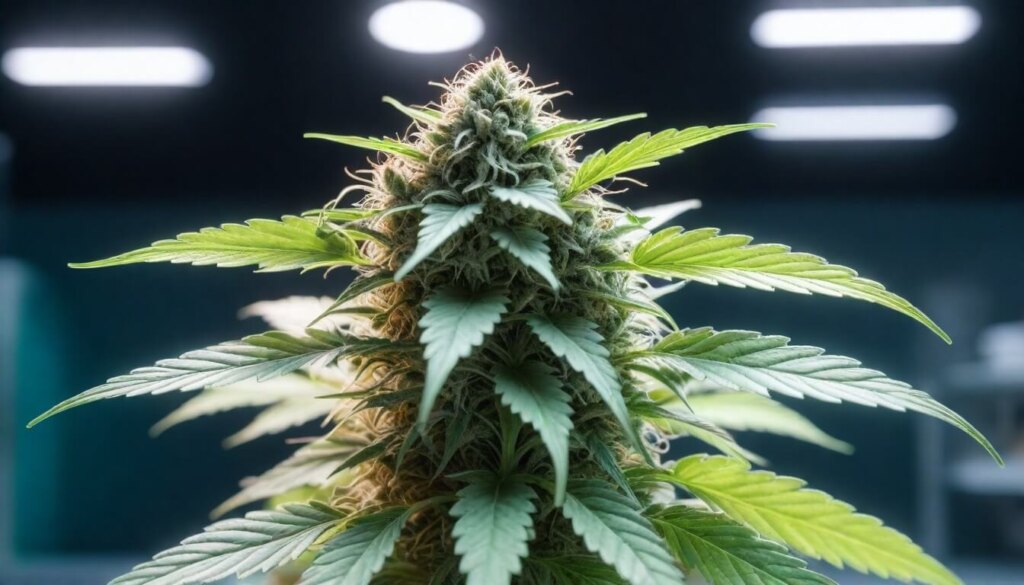Many of the side effects we associate with marijuana — dry mouth, paranoia, etc. — are due to delta-9 THC cannabinoids. So that leaves many wondering if THCa, the precursor to THC that’s found in raw cannabis, has similar side effects. Let’s explore THCa’s side effects and what you can do to largely avoid them.
Potential Side Effects of THCA
It’s tricky discussing the potential side effects of THCa since naturally, some will convert into THC, which overstimulates CB1 receptors. This causes an enjoyable high, but it can cause a lot of side effects that take away from it. It gets even trickier if someone consumes THCa when there are other cannabinoids in the product. But wait, many don’t realize when buying THCa flower that THCa transforms into THC if they go to consume it by adding heat.
As such, please take these side effects with a grain of salt. When left raw in appropriate dosages, THCa should have considerably fewer side effects than active THC.
Dry Mouth
Also known as cottonmouth, dry mouth is so common with many cannabis products — even ones devoid of THC. Extreme dry mouth is likely occurring due to the plethora of CB1 receptors in salivary glands. While delta-9 will likely trigger dry mouth greater than most other cannabinoids, it’s theorized that cannabinoids like THCa and CBD can by modulating the endocannabinoid system (ECS).
Increased Appetite
Ah, the classic cause of “munchies,” cannabis products, including THCa, can stimulate appetite. How it’s exactly doing that is unknown. Some ideas are that THCa cannabinoids are influencing ghrelin levels (hunger hormone). Others suspect it may be modulating the ECS in some form.
Dizziness
Lightheadedness after consuming cannabinoids is very common and can happen for so many reasons. One of those is cannabinoids’ ability to affect blood pressure. This is why I personally do not recommend cannabis products for blood pressure diseases such as glaucoma until more is known.
Psychological Effects
While THCa is not psychoactive in the same way as THC (it technically is, but it doesn’t cause intoxication), it may still have subtle effects on mood or perception in some individuals due to targeting receptors like vanilloid receptors in the brain. CBD does something similar.
Interactions with Medications
This goes for all cannabinoids, however, the extent and whether they increase or decrease the other medication’s potency will vary. The body needs to metabolize cannabinoids and uses the CYP enzyme system to do it. When that happens, the cannabinoid can delay or speed up the enzyme’s ability to metabolize another compound.
Comparing THCA Side Effects to THC
Currently, the easiest way to understand the difference between THCa and THC, is when left raw, while you may feel similar side effects such as anxiety, they should be considerably less apparent and common. This is because when raw, THCa will not largely, if at all, directly interact with CB1 receptors. There are a lot of receptors cannabinoids affect in the body, but overstimulation of CB1 receptors is generating the high, but that high is a catch-22 since overstimulation of CB1 receptors will likely cause more severe side effects.
It’s not the best, but when you don’t want to throw yourself into all the science, just think the following. The more intoxicating a cannabinoid, the more likely chance you will notice notable side effects.

Use of THCA: Tips and Precautions
Before you consume your high-THCa item, heck before you even buy it, you have to ask yourself, are you looking to get high by taking advantage of a potential loophole in the 2018 Farm Bill? If so, please treat THCa with the same respect you do with a high-THC flower, as that’s what you are getting. If you are interested in THCa’s ability to help inflammatory and neurodegenerative diseases without feeling intoxicated, please ensure you don’t accidentally decarb your product.
Since some THCa will naturally decarb, potency between THCa products can vary even when consuming the same doses. This will be even more the case if the certificate of analysis (COA) is older, meaning there has been more time for the conversion to happen. If you’re unsure about how THCa will affect you, please reach out to a health professional.
Conclusion: Is it Safe Using THCA?
THCa, the non-intoxicating precursor to THC found in raw cannabis, offers potential benefits with minimal side effects when consumed in its raw form. However, caution is advised as it can convert into intoxicating THC cannabinoids through decarboxylation. With the ability to easily turn this non-intoxicating cannabinoid into the main one behind marijuana’s high, I highly recommend that this isn’t the only article you use when researching if THCa is right for you.





